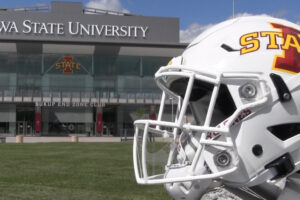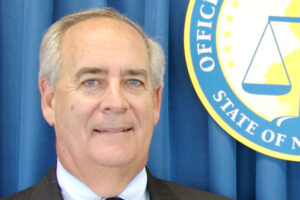Virginia’s Electronic Skill Games Banned Again After State Supreme Court Decision

The Virginia Supreme Court (pictured) has reinstated a ban on electronic skill games. The games look and function like slot machines, but require bettors to recognize and tap on a winning payline. They could now face police seizures if they are not removed from venues that currently offer them.
The decision, announced late on Friday last week, marks a significant shift in the state’s stance on these betting machines. The new ruling could affect thousands of these machines that have been operating across the state in gas stations, bars, and convenience stores.
The controversy surrounding electronic skill games in Virginia and other U.S. states has been ongoing for some time. During that period, three regulated Virginia casino venues have opened up. Alongside them, the legalization of Virginia online sports betting has led to consistent $300 million handle months in 2023.
The General Assembly initially passed legislation outlawing electronic skill games in 2020. However, the enforcement of this ban was delayed by former Gov. Ralph Northam for a year to aid the state in raising funds for COVID-19 relief efforts. Consequently, the ban was set to take effect in 2021.
But then Sadler Brothers Oil put together a lawsuit challenging the ban, which led to an injunction. That allowed games that had already been registered with the state’s Alcoholic Beverage Control Authority to continue operating.
The state Supreme Court’s recent decision rejected this injunction, putting the ban back into effect.
Supreme Court’s Stance
The state Supreme Court’s decision was clear in its view of gambling as an activity that can be heavily regulated or even banned by the state.
It rejected the December 2021 injunction on state seizures of the machines imposed by Greensville County Court in response to a lawsuit against the state from Sadler Brothers Oil. Sadler Brothers hosts skill gaming machines at its gas stations across Virginia.
“Although at times it is difficult to determine where a particular activity falls on the speech/conduct continuum, no such difficulty is present when the activity being regulated is gambling,” said the Court Panel in Friday’s decision, as reported by Associated Press.
“We long have viewed gambling as conduct that may be heavily regulated and even banned by the Commonwealth as an exercise of its police powers.”
The electronic skill games in question resemble slot machines in their appearance and gameplay. However, manufacturers of these games argue that they involve an element of skill, distinguishing them from traditional slot machines.
Sadler Brothers’ lawyers have argued in the lawsuit that the right to operate games in the grey undefined area of the law is guaranteed under the First Amendment of free speech.
The lawsuit is not set for a final hearing until December. But the Virginia Supreme Court has now given its firm opinion that it is not likely to be successful. Therefore, the previous injunction order is now unjustified.
“Respondents are unlikely to succeed on the merits of their free speech claim,” Justices Stephen McCullough, Teresa Chafin, and Wesley Rusell Jr. wrote. “Given the significance of that conclusion in this case, Respondents are not entitled to an injunction.”
Implications and Reactions
The reinstatement of the ban means that thousands of electronic skill games will have to be removed from various establishments across Virginia. This decision is expected to have significant financial implications, with many venues (such as the one involving Richmond Comedy Club) recently taking on the machines, even with their legal status uncertain.
While the court’s decision is clear, the debate surrounding electronic skill games is far from over. With the lawsuit challenging the ban set to go to trial in December, stakeholders on both sides of the issue will be keenly watching the proceedings.
The decision also raises questions about the future of electronic skill games in other states and how they might be regulated.
For example, a similar legal battle has been playing out in Missouri over the past few years. There, a coalition of 13 Missouri Casino venues has been battling Torch Electronics, another developer of the select-your-win slots style games. In August, a District Court ruled that they did not have the requisite authority to decide in favor of the Missouri Gaming Association, a decision which is now being appealed by the trade group.











